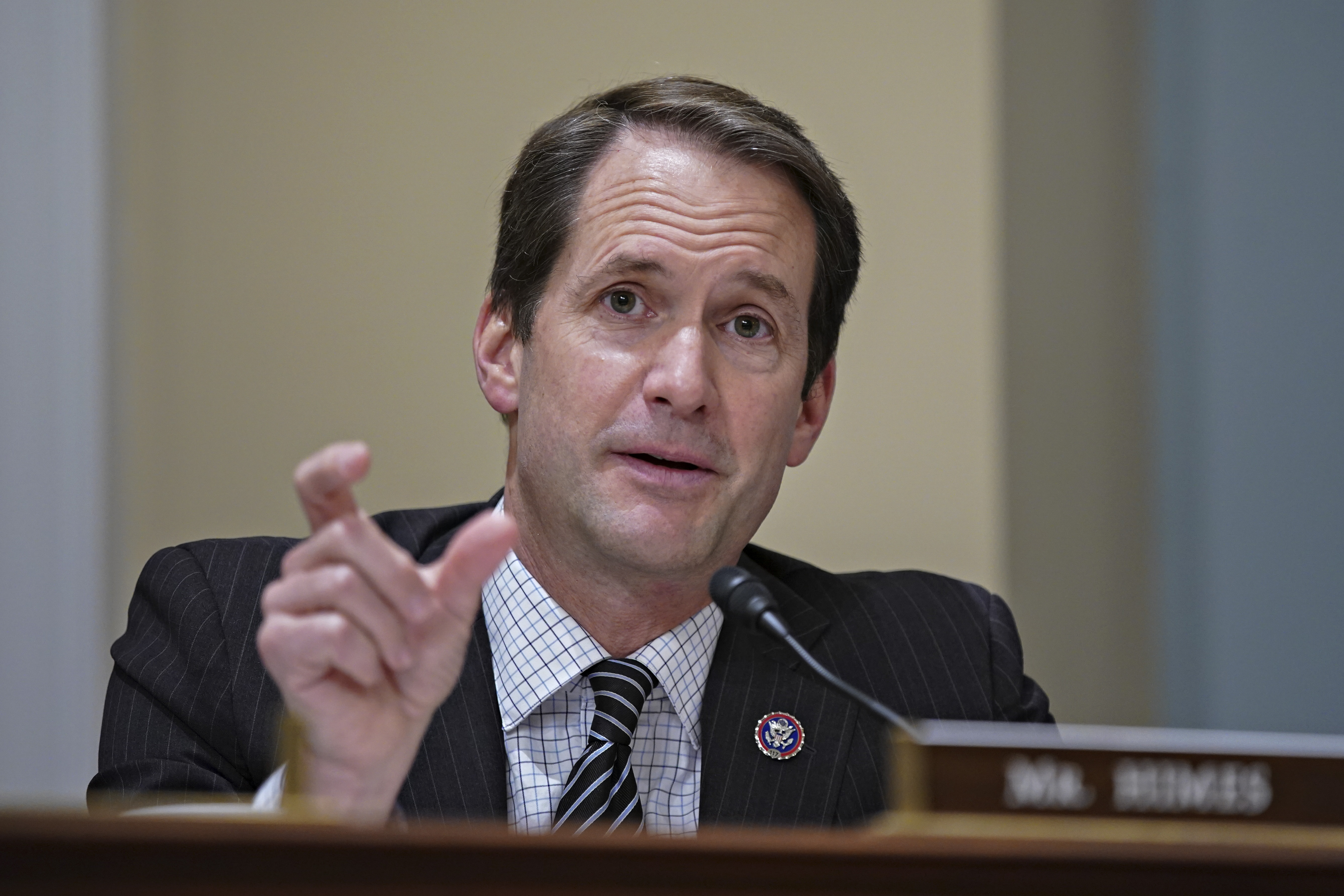.png)
.png)

Rep. Jim Himes (D-Conn.) introduced a provision allowing the Treasury Secretary to block certain financial transactions to a bill aimed at spurring competition with China. (Al Drago/Bloomberg via Getty Images)
The crypto industry is sounding the alarm at the possibility that the U.S. will be empowering the Treasury Department to make arbitrary decisions about whether to allow financial transactions – including cryptocurrency transactions across borders.
Aprovisionin theAmerica COMPETES Act, a bill introduced to the U.S. House of Representatives earlier this week, would allow the Treasury Secretary to block or “impose conditions” on transactions, should the official find that the transaction or the accounts involved are engaged in money laundering.
The overall bill is aimed at spurring economic competitiveness with China.
Industry think tank Coin Center warned ina blog postthat the bill could allow the Treasury Secretary to block all U.S. financial institutions from interacting with a crypto exchange, jurisdiction that has crypto exchanges, crypto transactions validated by a non-U.S. miner or non-custodial wallets.
“In brief, it would hand the Treasury Secretary unchecked discretion to forbid financial institutions (including cryptocurrency exchanges) from offering their customers access to cryptocurrency networks. The Secretary may not use this discretion immediately, but it is not power the Department should have,” the blog post said.
The Treasury Secretary already has this power in limited quantities. Underexisting law, the regulator, in consultation with the Federal Reserve Chair, Secretary of State, federal regulators and other agencies can impose these restrictions on transactions. However, a public rulemaking notice must be issued alongside the restriction, and the restriction will lift after 120 days unless the Treasury Department implements a rule continuing the block after the comment period.
The new provision would remove the comment period and 120-day expiration, Coin Center said, in addition to explicitly adding digital assets to the types of financial transactions that the Treasury Secretary can restrict.
The provision highlights “innovations in financial services” that make it easier to send funds across borders, “particularly through digital assets” which make it easier for criminals to transfer funds (though the bill also concedes that digital assets may be “useful to legitimate consumers.”
“Ransomware attacks on U.S. companies requiring payments in cryptocurrencies have increased in recent years, with the U.S. Treasury estimating that ransomware payments in the United States reached $590 million in just the first half of 2021, compared to a total of $416 million in 2020,” the bill said.
The provision was introduced by Rep. Jim Himes (D-Conn.) and resembles a similar provision he tried to attach to last year’s National Defense Authorization Act (NDAA), a must-pass bill that funds the U.S. military. The provision was stripped out of the bill at the time.
A press statement announcing the provision said it “streamlines the process by which special measures may be introduced and modernizes the authorities granted to the Financial Crimes Enforcement Network (FinCEN) by allowing the agency to pursue bad actors like those laundering the proceeds of Chinese ransomware and or declared a Primary Money Laundering Concern due to support to North Korea’s sanctions evasion.”
CoinDesk has reached out to Himes’ office for comment.
Lawmakers are already trying to block the provision from being passed. Rep. Ted Budd (R-N.C.) introduced an amendment that would simplyremove the provisionaltogether.
Still, even if the provision passes the House, its path to becoming law is unclear.
In order to become a law, the provision needs a counterpart in the Senate version of the bill, the Endless Frontier Act. At the moment, no such counterpart exists.
After the Senate and House pass their respective versions, the bills will go to a conference committee, where representatives from the House and Senate will iron out the differences between the two versions of the bill.
CoinDesk understands there has not been any work by House leadership yet to ensure this provision ends up in the Senate version of the bill.
.png)